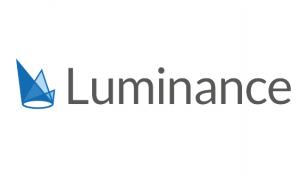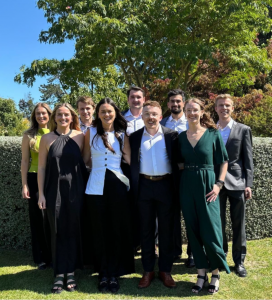It is only Wednesday, but already this week has brought news of four notable investment deals in legal tech.
Luminance
Luminance, a UK-based company that uses artificial intelligence to automate the generation, negotiation and analysis of contracts, and whose product is also used for e-discovery, has raised $40 million in a Series B funding round.
 The investment was led by the Santa Monica-based growth-stage venture firm March Capital, with participation from National Grid Partners and other existing investors, including Slaughter and May.
The investment was led by the Santa Monica-based growth-stage venture firm March Capital, with participation from National Grid Partners and other existing investors, including Slaughter and May.
Luminance says its large language model, specialized for legal, is used by a customer base of some 600 organizations in 70 countries, from global manufacturers such as Koch Industries, Hitachi and Yokogawa, to insurers including Liberty Mutual, as well as pharmaceutical giants such as LG Chem.
It will use the funding to drive its growth globally and to expand its footprint in the U.S., it says.
“The past 12 months have seen huge technical achievements from our Cambridge R&D hub. Developments such as ‘Auto Mark-Up,’ which brings agreements into line with gold standards in a click, and AI-powered tools for non-legal teams to independently negotiate contracts, make Luminance the most advanced legal LLM available today,” Eleanor Lightbody, CEO of Luminance, said in a statement provided by the company.
“This latest round of funding will help us to bring our technology to new markets, strengthen our foothold in the United States where Luminance now generates over one third of its revenue, and solidify our position as the clear market leader in this space.”
Scrut Automation
Scrut Automation, a governance, risk and compliance (GRC) platform for mid-market companies, has raised $10 million in growth capital, bringing its total raise since its 2021 founding to $20.5 million.
Funding this round were three of the company’s existing investors: Lightspeed , MassMutual Ventures and Endiya Partners.
Founded in India and with offices in California, the company said it will use the funding to expand its markets within North America and Europe, to enhance its platform capabilities, and to incorporate generative AI use cases to reduce the manual effort for risk and compliance teams.
Scrut was founded to address the unique risk and compliance challenges faced by tech-first mid-market businesses in highly regulated industries such as fintech and health care. It also serves SaaS businesses and startups.
“Mid-market organizations have limited options,” Aayush Ghosh Choudhury, said Scrut’s cofounder and CEO. “They can buy off-the-shelf compliance automation tools that offer a one-size-fits-all approach to compliance, disconnected from the organizational risks, or invest in expensive enterprise-grade tools with year-long implementation and underutilized features.”
Scrut provides a third option, he said, helping companies consolidate their compliance and risk management processes while contextualizing their risks, reducing duplication of effort, and automating control monitoring.
TRĒ
Todd Miller, founder and CEO of the enterprise relationship management platform gwabbit before selling it to Intapp in 2019, has now acquired a majority stake in TRĒ, a CRM startup for law firms and other professional services firms, and has become its CEO.
The amount of the deal was not disclosed.
TRĒ says it is disrupting the traditional CRM industry by offering the first turnkey AI-driven contact and relationship intelligence CRM for professional services firms with built-in e-marketing. The company says it can be deployed in just five minutes and includes data quality management and data cleansing, eliminating the need for data stewards.
In a statement announcing the news, Miller said that TRĒ was built specifically for the marketing and business development professionals who use CRM in law firms every day.
“TRĒ’s AI sources the best possible contact and relationship intelligence content for its built-in e-campaign solution,” he said. “Firms no longer need to wait months or years for results from their CRMs. TRĒ delivers instant value to firms and instant wins for the firm’s MBD champions.”
TRĒ is officially launching its product tday at the annual conference of the Legal Marketing Association in San Diego.
VXT
Vowing to take on Microsoft Teams within the legal industry, VXT, a New Zealand-based VoIP phone system for legal professionals, has raised a pre-series A funding round of $1.8 million NZD (roughly $1.1 million USD).
The round was led by existing investor GD1, with participation from other existing investors including Startmate and Phase One and a new investment from Silicon Valley entrepreneur J Zac Stein.
Its platform, reengineered and relaunched in February, is designed to automate the paperwork associated with lawyers’ phone calls. For calls made through its system, it automatically records billable time to the lawyer’s practice management system. It can also keep a record of advice given to clients through call recording (automatically disclosed at the start of a call) and secure AI-powered transcriptions.
Luke Campbell, VXT’s founder, said that the company rewrote hundreds of thousands of lines of code — over half its codebase — to launch an an all-new platform.
“The new platform sets lawyers up for an AI-enabled future in which practices free their lawyers to spend more time communicating with clients, and winning new business, as software becomes increasingly more capable of performing legal work itself,” Campbell said.
VXT’s phone and communications system integrates with several law practice management platforms, including Clio, MyCase, LEAP, Smokeball, PracticeEvolve, and Actionstep.
(By the way, I was recently a guest on VXT’s File Notes podcast. Check it out here.)
 Robert Ambrogi Blog
Robert Ambrogi Blog


